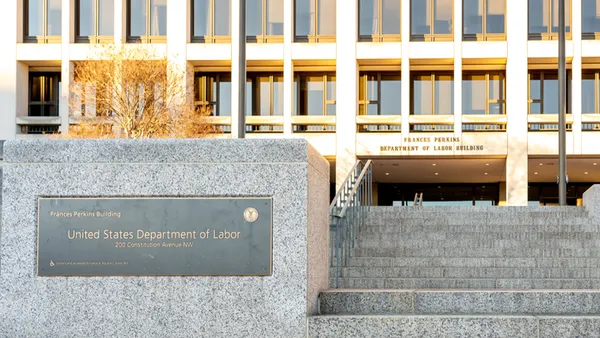Kent State University did not discriminate or retaliate when it decided to deny a transgender professor a previously offered course-load reallocation and a transfer to work on the main campus, the 6th U.S. Circuit Court of Appeals found Sept. 12, upholding a district court’s decision (Patterson v. Kent State University).
In 2021, the professor had reached out and been in talks with the dean of the College of Arts and Sciences about leading a forthcoming Center for the Study of Gender and Sexuality. The dean had also proposed reallocating some of the professor’s teaching load so they could work on developing a new gender studies major. Additionally, the professor had asked for a transfer to the main campus from the regional campus where they had been working.
When the reallocation offer was revoked and two committees voted against the transfer request, the professor filed a lawsuit alleging sex discrimination and retaliation in violation of Title VII of the Civil Rights Act of 1964, along with other charges.
The district and appeals courts, however, found that the professor had engaged in a “weeks-long, profanity-laden Twitter tirade” against their colleagues after learning a political science professor and head of the school where the center would be housed would be chairing committees overseeing the center and the gender studies major.
After witnessing several weeks of tweets calling the leadership transphobic, critiquing the “white cishet admin with zero content expertise,” referring to the field of political science as a “sentient trash heap,” and more, the College of Arts and Sciences dean revoked the offer to reallocate the professor’s teaching load so they could lead on developing the major, but still welcomed them to be on the committee.
The social media messages “violated university policy against attacking colleagues or their academic fields,” and thus were “reasonable grounds … for disciplining or reprimanding an employee,” the court said.
Additionally, the transfer committees discussed the professor’s “withdrawal from university service, negative interactions with other faculty members, and the department’s needs,” the 6th Circuit said. “No one discussed [the professor’s] gender identity.”
Social media has played an increasing role in employment law in recent years, as workers take to platforms to express their views. A former Israeli VP at Intel filed a now-dismissed lawsuit against the company after his supervisor expressed pro-Hamas views on social media, for example. And Gina Carano, a Disney star who was fired after users criticized her conservative social media posts, recently reached a settlement with the company after alleging sex-based discrimination, among other charges.
In general, private employers have wide latitude to discipline employees for social media posts, although doing so isn’t always advised. Attorneys told Legal Dive that having a social media policy can help prevent issues and clarify expectations.














